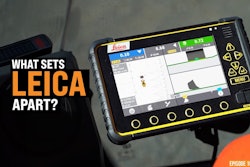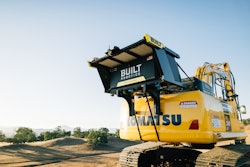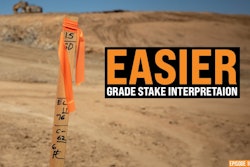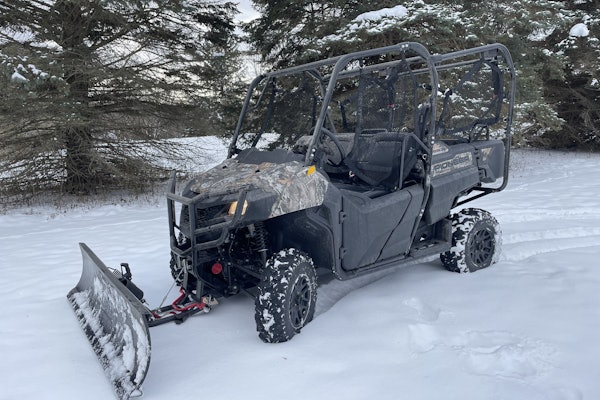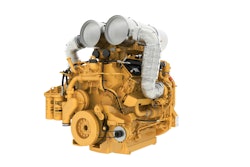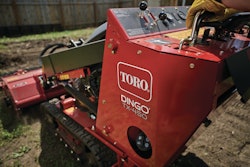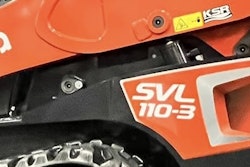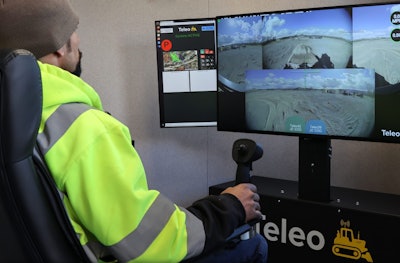
Editor’s Note: This is one of three Q&As with startup leaders in the construction industry. You can read predictions in our first installment by Erol Ahmed, director of communications at Built Robotics, here.
OEMs and private equity firms continue to team up with startups to accelerate the development of next-generation technology for the construction industry.
Those burgeoning technologies — from autonomy to AI to robotics — promise to increase safety, productivity and efficiency in field and office processes.
For this series of Q&As, Equipment World tapped a handful of startup leaders to find out what technologies are ripe to disrupt the industry and what to expect in the next five years. Those same experts also touched on some of the roadblocks to technology adoption and what contractors can do to alleviate pain points during operational changes.
Our next expert is Vinay Shet, co-founder and CEO of Teleo, a developer of autonomous technology for heavy construction equipment. Here’s what he had to say:
There are many technologies that are already on the market but haven’t fully taken hold on jobsites. How do you expect that landscape to change in the next five years?
According to Associated Builders and Contractors, the construction industry will need to attract an estimated 501,000 additional workers beyond typical hiring levels in 2024 to meet the demand for labor. In the next five years. We expect to see more construction companies adopting technologies like Teleo Supervised Autonomy, which combines remote and autonomous operations for heavy construction equipment, that help meet this demand.
Teleo recently rolled out its autonomous capabilities, and when the machines are running in autonomous mode performing routine and repetitive tasks, the operator is able to control other machines on site. If there are any complex tasks that the autonomous technology cannot yet fully handle, the operator is there to take over and remotely control the machines.
There’s a critical need for technologies that allow companies to achieve multiple goals, and over the last year, Teleo has seen an unprecedented number of customer orders demonstrating this demand. Our technology helps breathe new life into idle machines that can be operated remotely, increasing productivity, efficiency and safety on heavy construction projects. It also makes the operator's role safer, comfortable, and more accessible by moving them out of the cab of the machine and into a central command center.
[Watch: Retrofitting Equipment for Remote Control: An Interview with Teleo’s CEO]
Companies often cite the labor shortage or safety as the biggest benefits of emerging technology. How else is technology shaping or disrupting the jobsite of the future?
The labor shortage and safety concerns throughout the construction industry aren’t the only challenges that can be addressed through technologies. There’s plenty of room for disruption, but it doesn’t have to look like a seismic shift in business practices.
Customers have told us that equipment sits idle thanks to the extreme labor shortage the industry is experiencing. Construction companies need the right equipment to get their jobs done, and investing in new equipment is a major expense. Additionally, every hour of machine downtime costs companies money. Technologies like Teleo will help increase productivity.
In the future, you will see an uptick of activity on jobsites with more machines running than ever before. By allowing one operator to control multiple machines across multiple sites, Teleo is helping existing, idle machines return to service.
What do you see as the biggest roadblocks for contractors when it comes to technology adoption? And what are you doing to help speed up the adoption process or alleviate some of that hesitation?
The biggest roadblocks for contractors when it comes to technology adoption include the high cost associated with purchasing new equipment, connectivity issues and a lack of access to a power source in remote sites.
What is unique about our approach is that we are making it as easy as possible for construction customers to adopt this technology by allowing contractors to retrofit their own equipment, regardless of the make, model or year, to turn them into autonomous machines. This alleviates the need to buy expensive new equipment.
Teleo Supervised Autonomy combines remote and autonomous operations, allowing contractors to keep their operators involved by having them remotely perform complex tasks when the autonomous system can’t handle it yet. Teleo also provides access to a robust mesh network, which ensures uninterrupted connectivity across the work site so the command center can communicate with the machine, and a mobile solar station to power it.
We also have built our Global Dealer Partner Network, a network of distributors that provide Teleo customers with service and support, which helps to smooth the process of adoption and deployment of Teleo Supervised Autonomy.
What technology do you think will have the greatest impact on the industry in the next five years?
Artificial intelligence (AI)-powered technology will have the greatest impact on the industry as it becomes more advanced and more effective at solving pain points. Teleo is already bringing AI to the physical world of heavy construction equipment with its Teleo Supervised Autonomy. Technologies like this will transform the industry by making construction jobs safer, comfortable and more accessible.
What are you most optimistic about for the future of the construction industry?
I am optimistic about the transformation the construction industry will undergo as more companies begin to adopt AI-powered technologies like Teleo Supervised Autonomy, which combines remote and autonomous operations for heavy construction equipment. Not only will we see a significant improvement in operations and productivity, but we will also see diversification which is so important to innovation and progress. For example, Teleo’s technology and central command center create a more inclusive and accessible environment than a traditional job site, which will attract the next generation of workers.
Stay tuned: Our next tech perspective will feature Yuval Barnea, RodRadar's vice president of sales and marketing.





